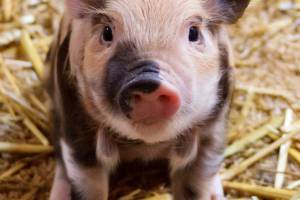Zoonotic Influenza Vaccines 2023
Zoonotic Influenza Vaccines August 2023
Zoonotic influenza infections are caused by harmful germs, bacteria, parasites, and fungi, says the U.S. Centers for Disease Control and Prevention (CDC). These germs cause illnesses in people, birds, and animals, ranging from mild to severe infections, according to the World Health Organization (WHO). As of August 2023, the CDC says annual 'flu shots' do not prevent zoonotic influenza infections such as swine flu (H3N2) or Avian influenza (Bird Flu). In September 2023, the U.S. CDC published Volume 29, Number 9, Research: Interspecies Transmission of Swine Influenza A Viruses and Human Seasonal Vaccine-Mediated Protection Investigated in a Ferret Model - results reaffirm the need for continuous influenza A virus surveillance in pigs and identification of candidate human vaccine viruses.
The WHO's Pandemic Influenza Preparedness (PIP) Framework is a World Health Assembly resolution adopted in 2011 as a global approach to pandemic influenza preparedness and response. If a pandemic influenza A virus changes and becomes transmissible from person to person while retaining its capacity to cause severe disease, the consequences for public health could be significant. The CDC says the severity is unpredictable because human immune systems have not established natural defenses. The most recent pandemic occurred in 2009, caused by an influenza A (H1N1) virus. Estimates indicate that the pandemic caused up to 400,000 deaths globally, with about 12,000 people in the U.S.
Pandemic Influenza Vaccine
In April 2007, the U.S. Food and Drug Administration (FDA) licensed the first inactivated influenza vaccine for people at increased risk of exposure to the H5N1 influenza virus subtype. It was derived from the A/Vietnam/1203/2004 influenza virus a, manufactured by Sanofi Pasteur Inc. Furthermore, four pandemic preparedness vaccines are authorized in Europe, which can be modified into pandemic influenza vaccines. The EMA conditionally Authorized AstraZeneca's Pandemic influenza vaccine H5N1 (P/LAIV) in May 2017 to prevent pandemic influenza in children and adolescents. Companies operating in the global swine flu vaccine market are Novartis AG, CSL Limited, Zydus Cadila, AstraZeneca plc, MedImmune, GlaxoSmithKline, Sanofi SA, Baxter, and Sinovac Biotech Ltd.
Bird Flu Vaccine
Avian influenza vaccine news is published on this webpage.
Swine Influenza (Swine Flu)
When a swine influenza virus (H3N2) is detected in a person, it is called a "variant influenza virus," says the CDC. When animal influenza viruses infect their natural host, they are named for that host, as in avian influenza viruses, swine influenza viruses, equine influenza viruses, etc. In 2005, human infection with the novel flu A virus became nationally notifiable in the United States. The term "swine flu" refers to swine influenza viruses infecting swine. There are different swine influenza virus subtypes and strains, some of which infect other animal species, including (rarely) humans. Most human infections with variant influenza viruses occur following proximity to swine. However, human-to-human transmission can occur, says the CDC. For recommendations on safe trade in animals and related products from countries affected by these influenza viruses, refer to WOAH guidance.
The first swine influenza virus was found in pigs in 1918. Since 2005, 512 variant influenza virus infections (of different influenza A virus subtypes), including 37 (human infections with influenza A (H1N2)v viruses, were reported in the U.S. The CDC published an interactive analysis of Novel Influenza A Virus Infections in the U.S. A study (Volume 29, Number 9) published by the CDC in September 2023, results reaffirmed the need for continuous influenza A virus surveillance in pigs and identification of candidate human vaccine viruses.
On September 2, 2023, the Ministry of Health, Welfare, and Sport of the Netherlands notified the WHO of a laboratory-confirmed human infection with a swine-origin influenza A(H1N1) variant virus. On August 4, 2023, the CDC reported the first two U.S. human infections with swine flu viruses who attended different agricultural fairs in Michigan in 2023 and had exposure to pigs. On June 7, 2023, Brazil notified the WHO of a fatal laboratory-confirmed human case of infection with a swine-origin influenza A(H1N1) variant (v) virus in the inner state of Paraná. It's the third swine flu fatality. Taiwan's CDC reported its third H1N2 variant (H1N2v) influenza virus case in May 2023 involving girls who had contact with pig farms in central Taiwan. India reported 451 cases of H3N2 from January to March 5, 2023.
African Swine Fever
African Swine Fever (ASF) is a highly contagious and deadly viral disease affecting domestic and feral swine of all ages. The U.S. Department of Agriculture and the FDA say ASF cannot be transmitted from domestic and wild pigs to humans.
Langya Henipavirus
Langya henipavirus (LayV), also known as Langya virus, is a species of henipavirus detected in China's Shandong and Henan provinces. Media reports indicated that 35 people were infected from 2018 to August 2022. Hendra virus and Nipah virus from this genus are known to infect humans, with fruit bats as the natural host of both viruses.





